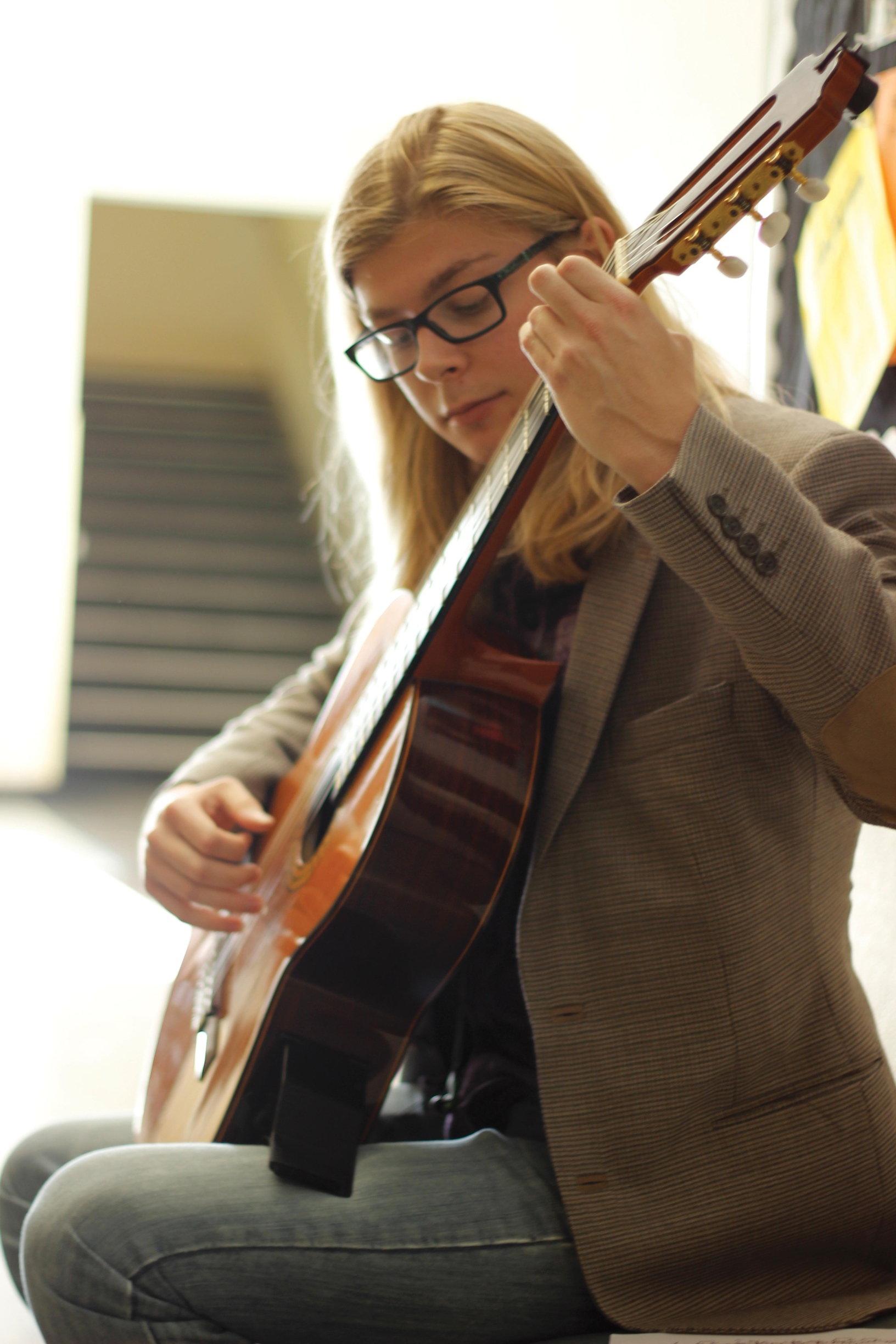Guitar lessons program sees changes
Changes were made that limit the number of people to which guitar majors can give lessons.
For more than 20 years, USU students of any major could take private and group guitar lessons offered through the music department. To give students majoring in guitar performance experience in teaching private guitar lessons, those who have advanced far enough in the program are allowed to teach non-majors.
But last year, this became a concern of the music school’s accreditation organization, the National Association of Schools of Music. Questions were raised as to whether undergraduate students were qualified to be teaching other students.
“We had so many non-majors taking lessons that we were giving a bunch of those students to the guitar majors to teach,” said Corey Christiansen, the director of guitar studies at USU. “And they felt that it was a little strange to have so many students without bachelor’s degrees – even though they are very qualified to teach lessons – giving lessons for credit.”
To satisfy the accreditation requirements while still providing guitar majors with the opportunity, changes were made last semester, reducing the number of non-majors a student is assigned to teach to one per semester.
“So we were basically able to make the argument that the students, as part of their training, should be able to teach for credit … It’s kind of like an internship,” Christiansen said.
This change, however, did not limit availability to non-majors. According to Christiansen, the hiring of three adjunct professors who assist in teaching private lessons made for a smooth transition instead.
“We fixed it in the first semester, so it worked out perfectly,” he said.
For Matthew Thamphya, a senior majoring in guitar performance, what sets USU’s guitar program apart from other schools is the students-teaching-students approach.
“You can probably go anywhere in the U.S., and to say that to have undergrads teaching other undergrads is kind of out of the question,” Thamphya said. “It’s just something that we’re lucky to have here.”
Christiansen said after spending time at other universities looking at their curriculums, he feels the pedagogy programs designed by his father, program founder Michael Christiansen, are unique to USU.
“At an undergraduate level, we’re training some of the best guitar teachers in the country,” he said. “They go off into these master’s degree programs, which is usually where someone gets that kind of training, and they’re way ahead of the curve because of the programs that have been in place here for over 25 years.”
Christiansen said students must have taken the pedagogy class, a course on how to teach, to be able to give lessons. It isn’t a graduation requirement to teach lessons and they don’t receive academic credit, but students can make extra money and apply what they learn in the pedagogy courses, as well as learn how to keep track of grades and other paperwork, “the little things you don’t think about,” Christiansen said.
“All of them are going to have some kind of teaching component in their careers if they are going to be musicians,” he said. “The school has been fantastic working with us so that the students can not only get training in just teaching in a private studio environment, but they can get some experience in how private lessons work within a university structure.”
According to Kelin Gibbons, a junior majoring in guitar performance, many students choose to teach private lessons outside of the university setting. He has taught through the music department for three years and calculates teaching 25 students within that time.
Due to the pay cuts of private teachers at the university two years ago and the recent reduction of students he can have, he has found other ways to earn extra cash for teaching.
“I went and got a job down at KSM Music,” Gibbons said. “I still teach one student up here. It sucks that it can’t be a reliable income. You get about 100 bucks a semester for teaching one person … Now that I’m doing it down at KSM, I like it even more.”
Although this change may be unfavorable for some, Gibbons said he recognizes the reasoning behind it.
“It makes sense because (the new adjunct professors) are all very good, so all of the students are getting very good teachers,” he said. “I’ve heard of some people having teachers up here that weren’t very good, so maybe some of the students shouldn’t be teaching. So, I can see how it could’ve caused a problem … and everyone has a really good teacher now.”
Thamphya said he chooses to remember why he’s here in the first place.
“We’re here, just like anybody else, to be students first,” he said. “Being able to teach is just a bonus.”
-manda.perkins@hotmail.com

